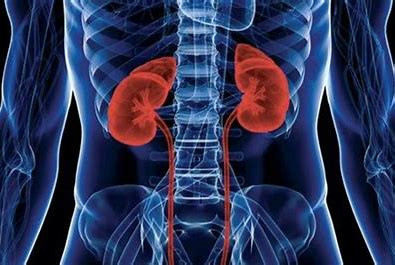Ada banyak masalah kesehatan yang dapat memengaruhi ginjal, salah satunya adalah IgA nephropathy atau nefropati IgA. Penyakit ini terjadi akibat penumpukan protein immunoglobulin A (IgA) di bagian ginjal yang bertugas menyaring darah. Penumpukan IgA ini menyebabkan peradangan, kerusakan jaringan, dan gangguan fungsi ginjal.
IgA nephropathy, yang juga dikenal sebagai penyakit Berger's, dapat berkembang secara perlahan selama bertahun-tahun. Jika tidak ditangani dengan tepat, penyakit ini dapat berujung pada gagal ginjal.
Penyebab Nefropati IgA
Penyebab pasti nefropati IgA belum sepenuhnya dipahami. Namun, kondisi ini diyakini berkaitan dengan kelainan pada sistem imun tubuh.
Protein IgA berperan dalam membantu tubuh melawan infeksi. Namun, pada penderita nefropati IgA, protein ini mengalami perubahan struktur yang membuatnya lebih sulit diurai oleh tubuh. Akibatnya, protein yang rusak ini menumpuk di ginjal dan memicu peradangan.
Meskipun penyebab pastinya belum diketahui, ada beberapa faktor yang dapat berkontribusi terhadap munculnya nefropati IgA. Beberapa faktor tersebut antara lain:
Faktor genetik
Nefropati IgA cenderung lebih sering terjadi pada orang dengan riwayat anggota keluarga yang memiliki kondisi serupa. Variasi gen tertentu yang berhubungan dengan sistem imun dapat memengaruhi kerentanan terhadap penyakit ini.
Gangguan sistem imun
Kelainan pada sistem imun dapat meningkatkan risiko penumpukan IgA secara tidak normal di dalam tubuh.
Baca Juga: Tanda-Tanda bila Hati Mengalami Keracunan (Hepatitis Toksik)
Infeksi saluran pencernaan atau pernapasan
Infeksi yang terjadi di dalam tubuh, baik pada saluran pencernaan maupun pernapasan, sering kali memicu gejala pada orang dengan nefropati IgA. Kondisi ini dapat memperburuk penumpukan protein IgA di ginjal, yang akhirnya meningkatkan peradangan dan kerusakan pada ginjal.
Penyakit lainnya
Penyakit lain seperti sirosis hati, penyakit celiac, atau dermatitis herpetiformis meningkatkan risiko berkembangnya nefropati IgA.
Gejala Nefropati IgA
Gejala nefropati IgA sering kali tidak muncul di tahap awal, sehingga penyakit ini sering berkembang tanpa disadari. Pada beberapa kasus, penyakit ini baru diketahui setelah fungsi ginjal sudah cukup terganggu.
Berikut adalah beberapa gejala umum nefropati IgA:
- Adanya darah di dalam urine yang membuat urine terlihat berwarna merah muda, merah, atau coklat seperti teh.
- Urine tampak berbusa akibat adanya protein di dalam urine, yang menandakan bahwa ginjal tidak berfungsi secara optimal dalam menyaring darah.
Baca Juga: Urine Berwarna Cokelat Gelap, Ini Penyebabnya
- Tekanan darah tinggi akibat peradangan dan kerusakan pada ginjal. Tekanan darah tinggi ini juga dapat memperburuk kerusakan ginjal.
- Penumpukan cairan di tubuh, terutama di kaki, tangan dan wajah yang menyebabkan pembengkakan.
- Penurunan fungsi ginjal yang ditandai dengan kelelahan, mual, dan penurunan nafsu makan.
Nefropati IgA merupakan penyakit ginjal yang perlu diwaspadai. Apabila Anda menemukan adanya salah satu atau lebih gejala di atas, segera lakukan pemeriksaan dokter untuk mendapatkan evaluasi. Anda juga bisa memanfaatkan layanan konsultasi kesehatan pada aplikasi Ai Care dengan mengunduhnya melalui App Store atau Play Store.
Mau tahu informasi seputar penyakit lainya? Cek di sini, yah!
- dr Nadia Opmalina
National Institute of Diabetes and Digestive and Kidney Diseases (2022). IgA Nephropathy. Available from: https://www.niddk.nih.gov/health-information/kidney-disease/iga-nephropathy
Kids Health (2020). Blood Test: Immunoglobulins (IgA, IgG, IgM). Available from: https://kidshealth.org/en/parents/test-immunoglobulins.html
Cleveland Clinic (2021). IgA Nephropathy. Available from: https://my.clevelandclinic.org/health/diseases/5990-iga-nephropathy
Preeti Rout, et all (2024). IgA Nephropathy (Berger Disease). Available from: https://www.ncbi.nlm.nih.gov/books/NBK538214/
Harvard Medical School (2023). Weak kidneys? Pay attention but don't worry excessively. Available from: https://www.health.harvard.edu/diseases-and-conditions/weak-kidneys-pay-attention-but-dont-worry-excessively
National Kidney Foundation (2020). 10 Signs You May Have Kidney Disease. Available from: https://www.kidney.org/news-stories/10-signs-you-may-have-kidney-disease












